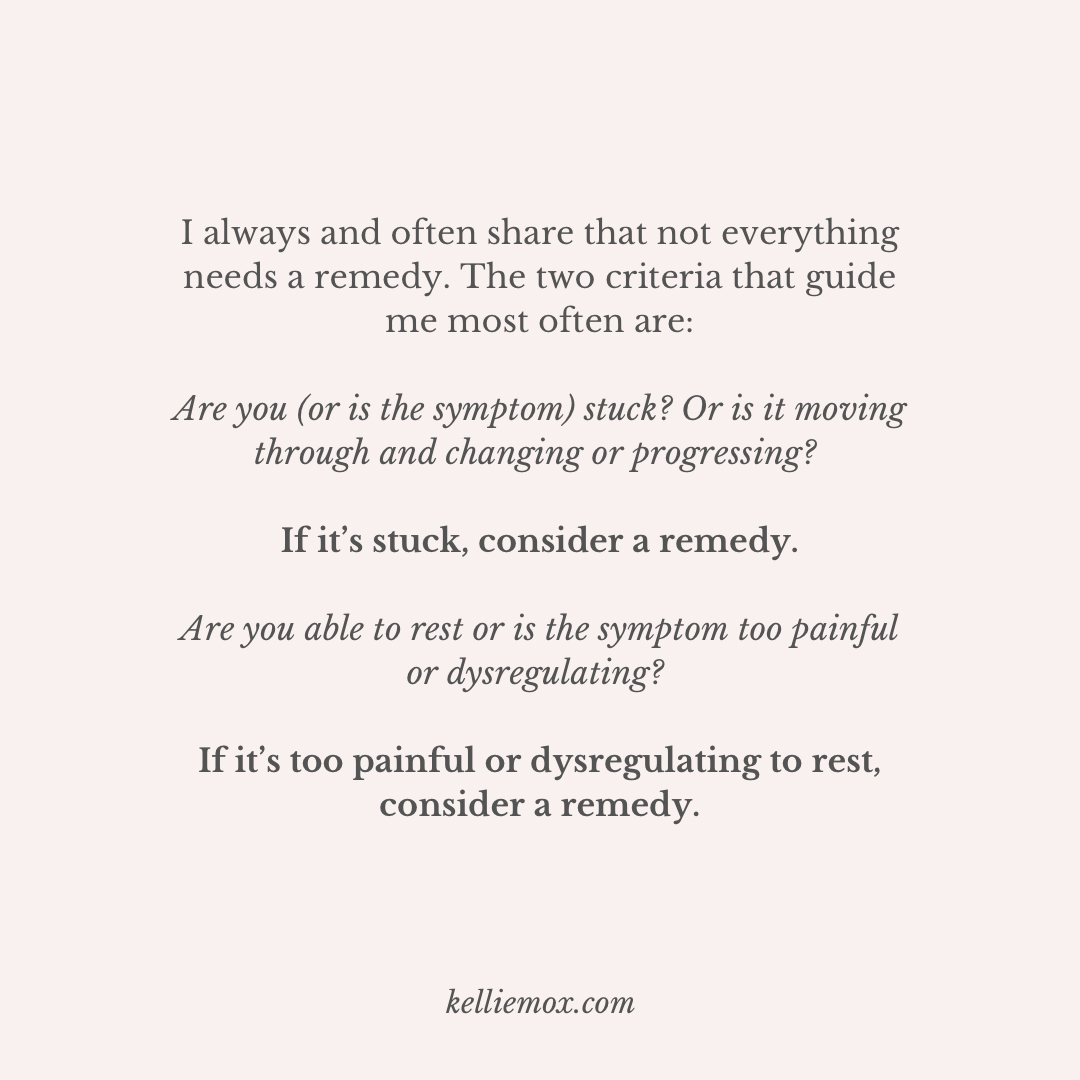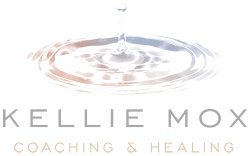Before I share homeopathic remedies for acute coughs, I want to you to know this: Like fever, cough is a healing response. It is a reflex designed to keep irritants out of your lungs and propel particles out. If there’s something in your lungs, coughing is a remarkably adaptive response that you want to support (rather than routinely suppress).
Yes, it’s been a particularly intense time (in the northern hemisphere at least) for coughs. My kids, who rarely get respoiratory symptoms, had coughs that lingered for weeks. And, for the most part, I didn’t give them homeopathy for it, other than when it disrupted my daughter’s sleep for a bit.
I always and often share that not everything needs a remedy. The two criteria that guide me most often are:
- Are you (or is the symptom) stuck? Or is it moving through and changing or progressing?
If it’s stuck, consider a remedy.
- Are you able to rest or is the symptom too painful or dysregulating?
If it’s too painful or dysregulating to rest, consider a remedy.
But I don’t recommend giving a remedy for an ACUTE cough just because there’s a cough.

Discernment
OF COURSE, mind your individual susceptibilities. If you or your child have been diagnosed with a chronic condition or your child always winds up in the ER with a cough, get on it with a remedy (and whatever else you need to do).
Note: In that case, it’s a CHRONIC issue, and if you want to use homeopathy alongside other treatments, I recommend working with a homeopath.
Discernment is what I’m talking about here. Our ability to discern when someone needs a remedy builds with practice. It is something we cultivate over time and with experience. Knowing when to step in with a remedy and when to let the body do what it knows how to do…this is a skill that uses cognition AND intuition.
AND, sometimes we can’t discern, so we reach out to our homeopath (I did it this week…even homeopaths reach out to their homeopaths).
Homeopathic Remedies for Acute Coughs
Drosera: Spells of hard, deep, violent, painful coughing. Cannot catch breath between coughs. Known for its resonance with pertussis-like coughs. Dryness and irritation or tickling of throat leading to cough. Constriction in throat or chest. Vomiting from cough. Worse talking, better walking slowly or sitting up. Worse night, esp 12am – 2 am, worse drinking or eating, lying at night as soon as head touches the pillow.
Bryonia: Painful cough. It HURTS to cough. The person will hold their chest or head to stabilize while coughing, because they are worse with motion. Typically dry cough. Better in open air. Worse eating, entering a warm room, motion, talking, laughing.
Spongia: Dry, hacking cough, often “barky” or croupy with constriction in the larynx. One of three in the croup trio. Worse before or at midnight, cold dry air, cold drinks. Better warm drinks or food, eating or drinking, sitting, bending the head forward.
Aconite: Sudden onset cough after exposure to cold, dry wind. Often with high fever. First remedy to think of in early stage of croup. Worse at night or just after falling asleep. Worse inspiration, lying on sides. Better lying on the back. Often with anxiety, fear, restlessness.
Hepar Sulph: Dry, croupy cough (also in croup trio) or productive cough with thick, yellow mucous. Dry at night but loose in the morning.
Worse from exposure to cold, dry air. Worse cold food or drink, uncovering/undressing, getting one hand cold, talking, in bed until midnight. Better warmth and expectoration.
Ipechachuana: Dry cough in spells with irritation or tickling in larynx. Choking or gagging. Nausea, vomiting with cough. Suffocative cough. With nosebleed. Worse night, deep inspiration, eating, in a warm room. Better after expectoration, with cold drinks.
Antimonium Tart: “Rattling” wet cough. Much noisy mucous in the chest, not productive. With irritability and aversion to being touched. Think of for infants or elderly who are too weak to expel mucous. Worse at night (10pm to after 12am), anger, eating, yawning, lying. Better sitting, after expectoration.


Arsenicum: Dry cough may alternate with loose. Often accompanied by anxiety and restlessness, chill, and thirst for small sips. Worse from 12am-2am. Worse cold air, cold drinks, lying, dust, smoke. May have the sensation that lungs are full of smoke or dust. Better sitting upright.
Phosphorus: For the person whose every cold goes to the chest. Burning in chest with cough. Lingering dry, tickling coughs. Worse evening, cold air, entering/leaving warm room to/from cold, talking, lying on left side. Better lying on right side, warmth.
Causticum: A tickling cough with difficult expectoration…can’t cough deep enough to get the mucous out. With hoarseness or raw feeling in chest. Cough may go away completely during the day. Worse drafts or cold air, lying, bending forward. Better cold drinks.
Rumex: Tickling, incessant coughs with little expectoration or mucous. Or productive hard cough. Worse cold air…the keynote here is worse entering or leaving a warm from TO or FROM cold air. Worse 11pm, morning, undressing or uncovering, pressing on the throat, inspiration, talking, laughing.
Kali Carb: Cough with stitching pains in the chest. Cough may be productive with thick mucous. or dry and tickling. Tickling sensation when first lying down at night provokes cough. Worse between 2am-4am or in morning on waking, cold air, draft, lying, exertion, deep inspiration, warm food. Better upright or bent forward.
Coccus Cacti: Coughing spells from tickling in larynx that come on especially in winter. Hard, short, hacking cough with ropey mucous (or totally dry, choking). May end in vomiting. Worse 6am-7am or after 11:30pm, warm room, warm food and drink, lying. Better drinking cold drinks, cold, open air.
Pulsatilla: Loose, rattling coughs with thick yellow or greenish mucous. Coughs from post nasal drainage in children that interrupt sleep. Dry in evening, loose in the morning. Worse evening or at night in bed, warm, stuffy room, before menses, lying. Better open air.
Potency and Dose
I recommend starting with 30C if you’re not 100% sure the remedy is the best fit for you. You can always go up to 200C if you feel the remedy is helping, but your response is not lasting despite repetition of the remedy.
For acute concerns like cough, I recommend putting 2 pellets of the remedy in 6 oz. of filtered water in a covered glass jar. Take 1/2 tsp (ish) doses, shaking the jar between each dose. The frequency of dosing will depend on the intensity of your symptoms. It may be just twice per day, or if symptoms are intense, every 2-3 hours.
ALWAYS pause dosing if you notice a worsening of symptoms or new symptoms. And back off frequency if you are improving…no need to continue nudging the Vital Force with a remedy when it’s clearly responding.
If you’d like to learn more about selecting remedy and potency for acute concerns, check out my online mini-course: Selection of Remedy and Potency for Acute Concerns.
**If you’re on Instagram, you can also access this remedy information here and here.


